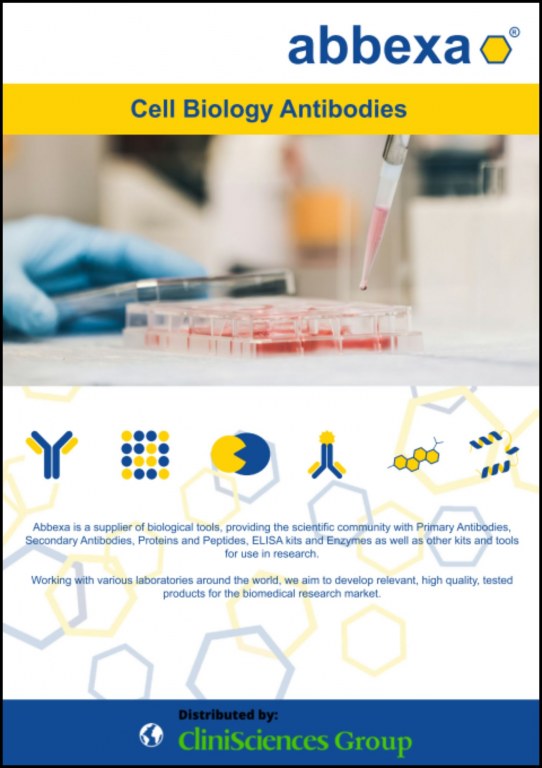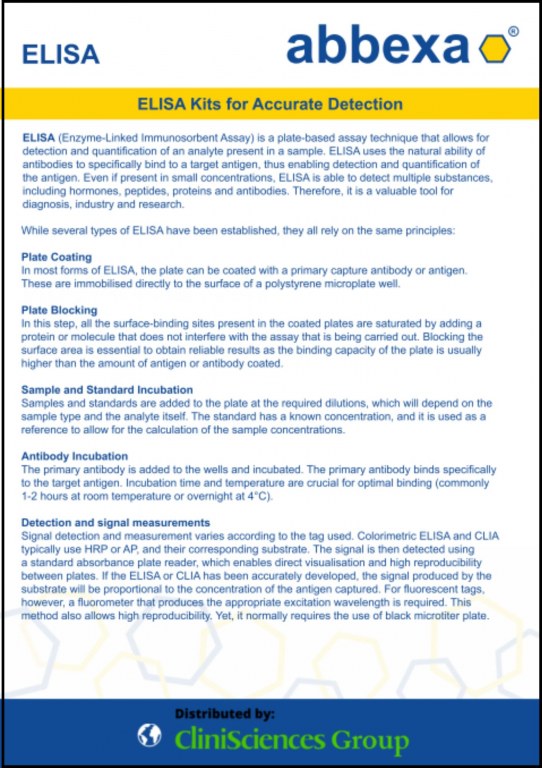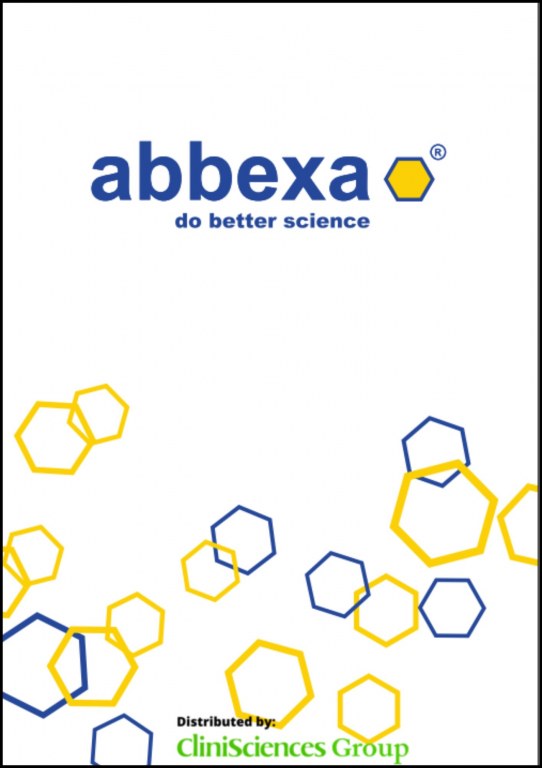Abbexa
 |
||||||||||||||||||||||||||||||
Abbexa is a dedicated worldwide supplier of biological tools for the life science, pharmaceutical and biotechnology research and development sectors. Abbexa provides the scientific community with primary antibodies, secondary antibodies, proteins, ELISA kits and enzymes as well as other kits and tools designed for use in research. Abbexa also offers custom protein, peptide and antibody production services to meet customer requirements. Abbexa is committed to providing scientists and researchers with the best customer experience and high-quality products. Abbexa’s mission is to offer unrivalled expertise and outstanding quality laboratory consumable products, striving to consistently improve. Please do get in touch with any comments regarding the website, service, products, or anything else.
Learn more :
Website : www.abbexa.com
| ||||||||||||||||||||||||||||||

Anti-Rabbit Secondary Antibodies
Anti-Rabbit Secondary Antibodies are antibodies that are used to detect and visualize the presence of primary antibodies that are raised in rabbits. They are generated by immunizing a host animal with a pooled population of immunoglobulins (Ig) from the target species, in this case, rabbits, and then collecting and purifying the resulting antibodies. Anti-Rabbit Secondary Antibodies are available in host species including goat, donkey, mouse, chicken, and sheep, and come in a variety of conjugates, including unlabeled antibodies, enzyme conjugates (alkaline phosphatase (AP) or horseradish peroxidase (HRP)), and biotin. They are also available as whole IgG.
Choosing the right anti-rabbit secondary antibody for an experiment depends on several factors, including the application, host species of the primary antibody, isotype of the secondary antibody, conjugate type, and pre-adsorption or cross-adsorption. The following steps can help in selecting the right antibody:
- Determine the host species of the primary antibody: The secondary antibody should be raised against the host species used to generate the primary antibody. For example, if the primary antibody is raised in rabbit, an anti-rabbit secondary antibody raised in a different species other than rabbit, such as goat, donkey, or mouse, should be used.
- Determine the isotype of the primary antibody: The secondary antibody should be directed against the class/isotype of the primary antibody. For instance, if the primary antibody is a mouse IgG1, an anti-mouse IgG or a less specific F(ab) fragment anti-mouse IgG should be used.
- Choose the conjugate type: Secondary antibodies can be enzyme-labeled (peroxidase, alkaline phosphatase), fluorochrome-labeled (FITC, R-PE, Alexa-Fluor®), or biotinylated. The choice of conjugate type depends on the application.
- Consider pre-adsorption or cross-adsorption: Pre-adsorption or cross-adsorption can help reduce non-specific binding. For example, if the primary antibody is raised in rabbit, an anti-rabbit secondary antibody that has been pre-adsorbed against other species, such as mouse or human, can be used.
- Check the compatibility with the assay: The secondary antibody should be compatible with the assay being used, such as Western blot or immunohistochemistry.








